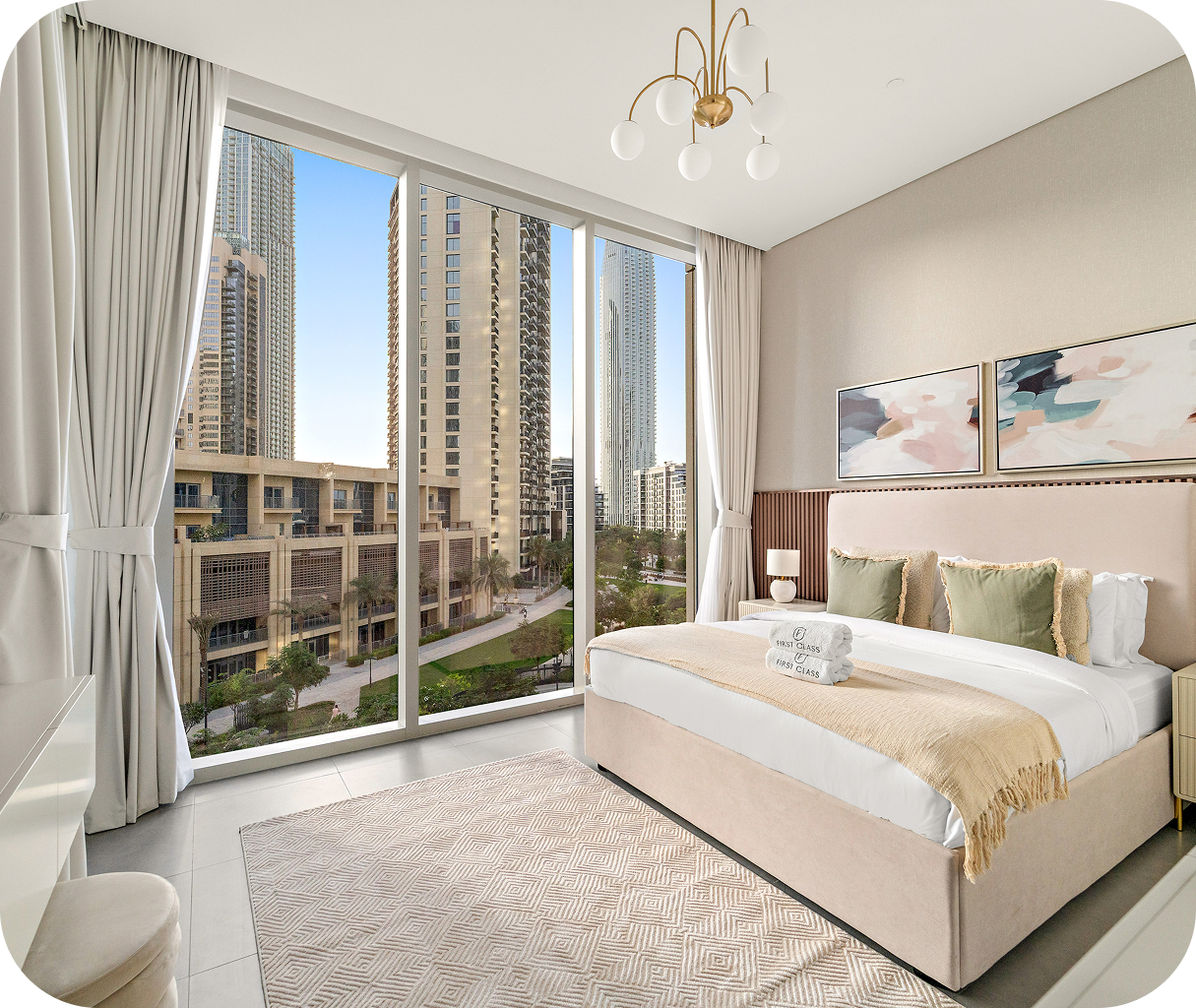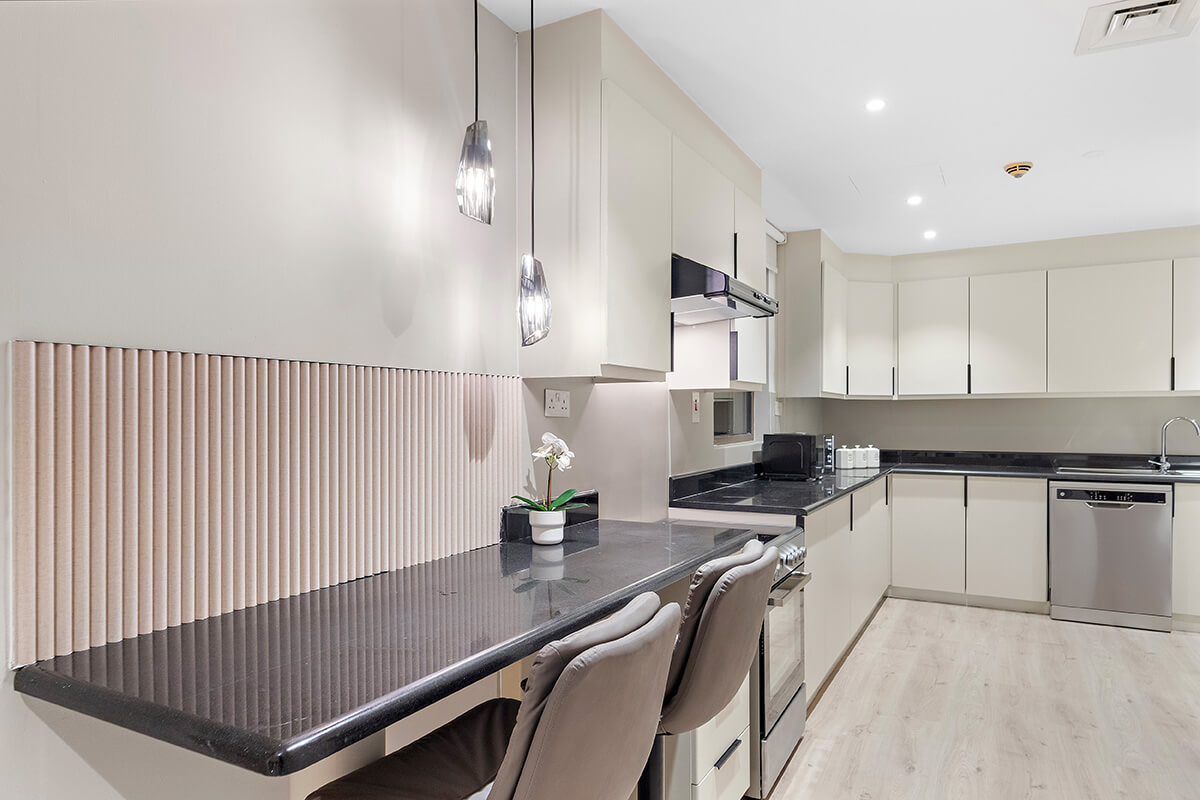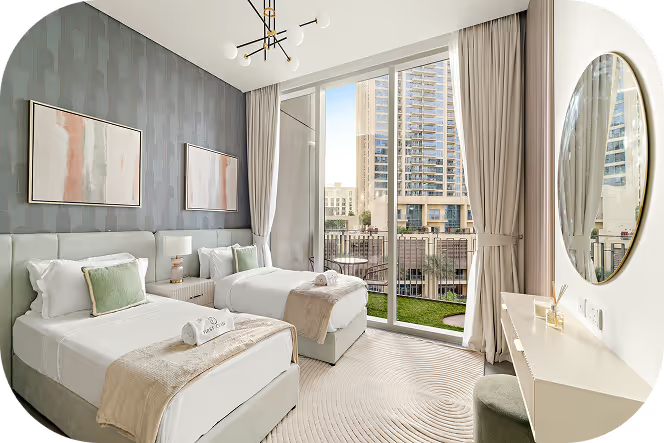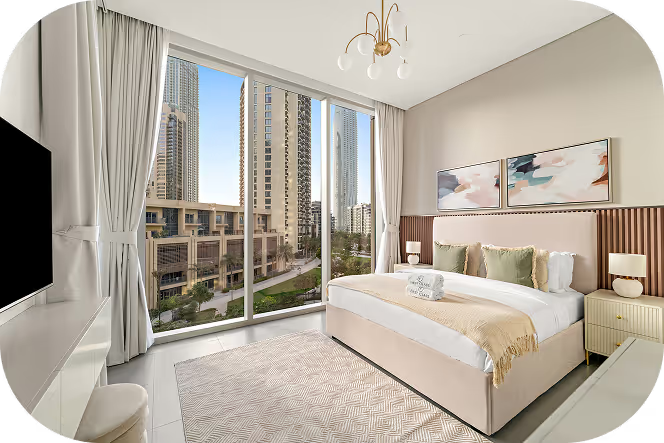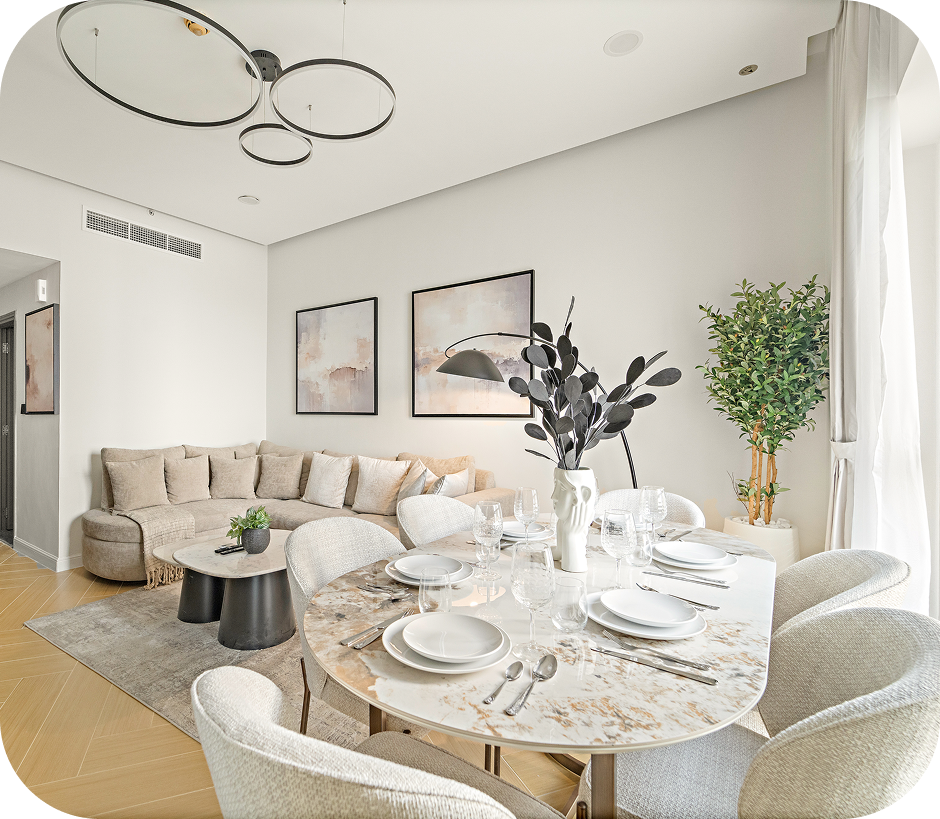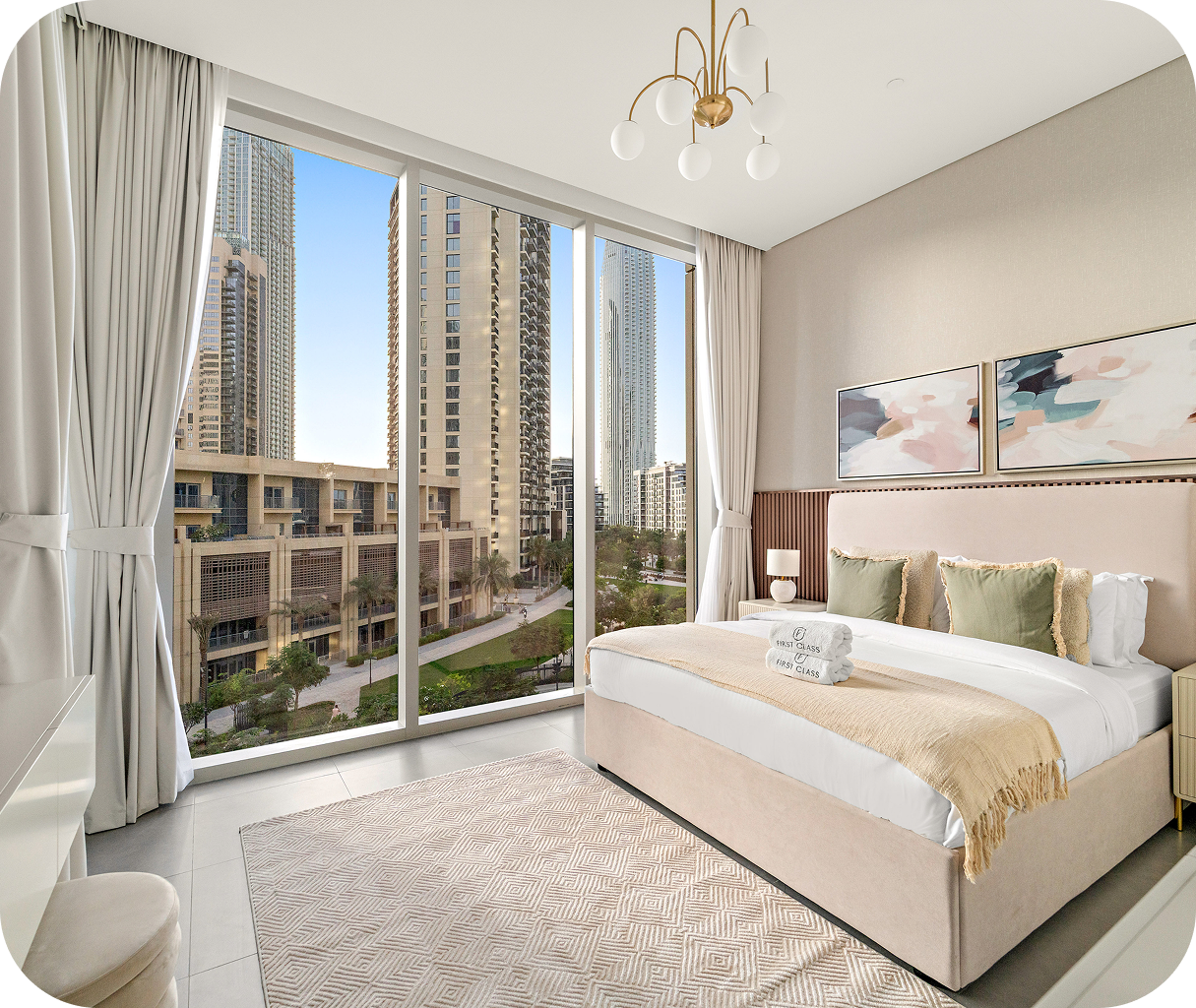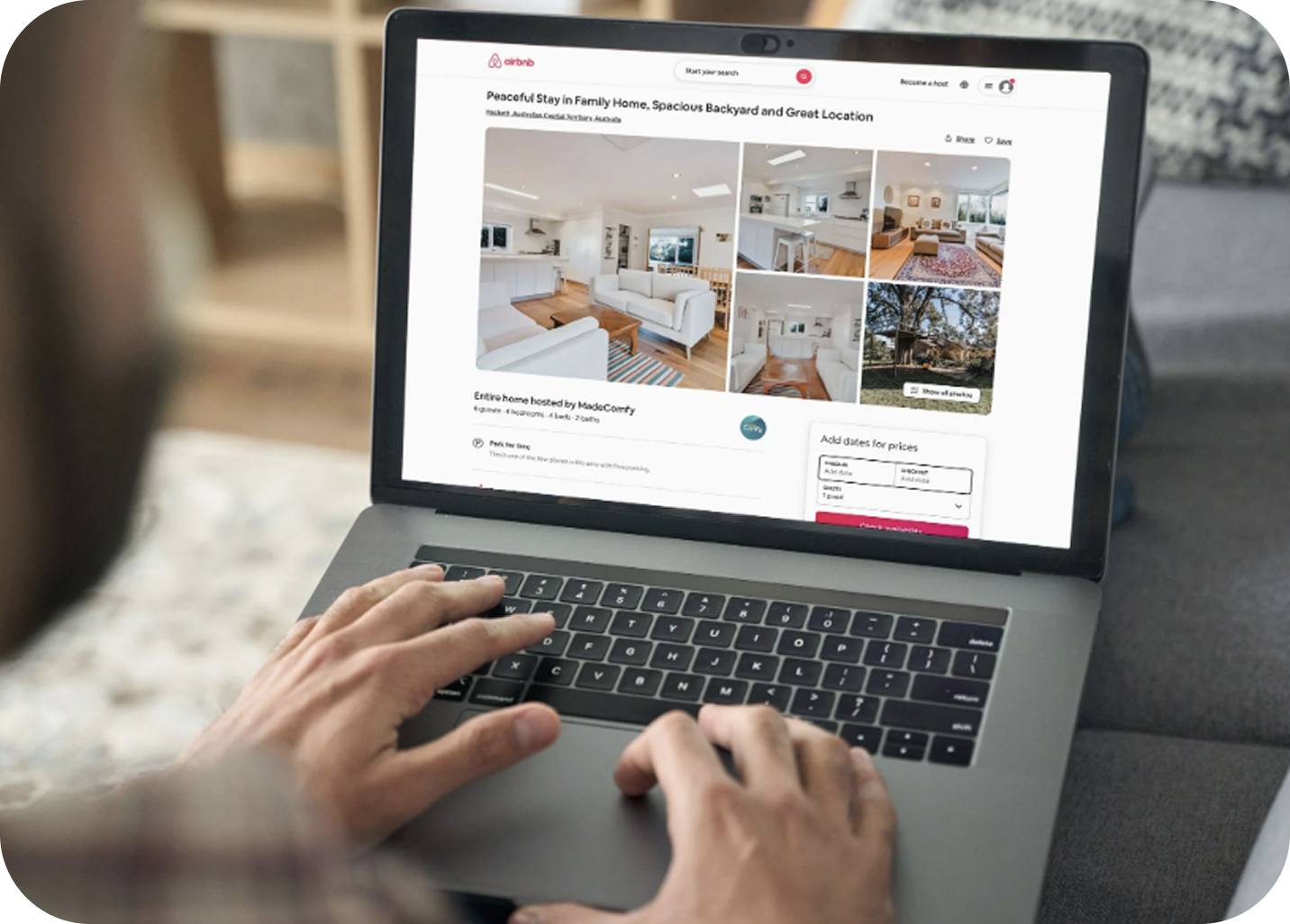Short-term rentals typically refer to fully furnished properties available for stays ranging from a few days to several months. Dubai’s popularity as a global tourist and business hub has fueled demand for short-term accommodation options, attracting both holidaymakers and corporate travellers. Licensed through Dubai’s Department of Tourism and Commerce Marketing (DTCM), short-term rentals must meet specific quality and safety standards, giving owners a regulated legal path to higher earnings.
For landlords, this means the flexibility to adjust rates, use their property between guest bookings, and potentially earn up to 20–30% more than with a year-long lease. However, short-term rentals do require more active management, guest support, and regular maintenance, which is why many property owners turn to a specialist like First Class Property Management to take the hassle away.
